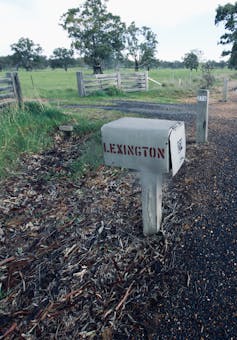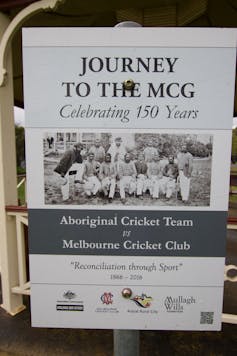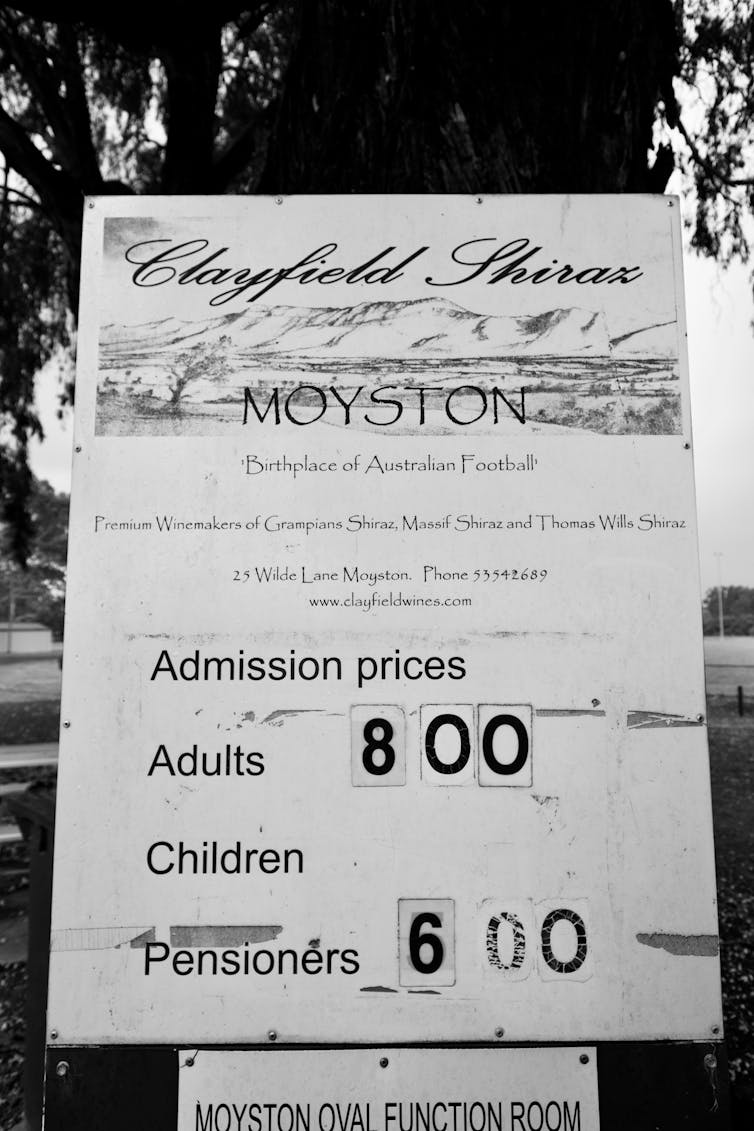Source: The Conversation (Au and NZ) – By Jess Coyle, Lecturer, Sports Management, Western Sydney University
This article discusses colonial violence against First Nations peoples. There is reference to people who are now deceased.
There has been a new revelation by researcher Gary Fearon that cricketer and founding father of Australian (Rules) Football Tom Wills was an active participant in the mass murder of Aboriginal people. The research confirms that Wills was involved in an attack on Gayiri people in Queensland, in response to the murder of his father.
The new evidence uncovered by Fearon reflects the complex politics of settler-Aboriginal relations at the time. Through his relationship with Aboriginal people, Tom Wills was essentially existing on the boundary between settler and Indigenous peoples.
The discovery challenges popular understandings of Tom Wills as a peaceful friend of all Aboriginal people. It will be interesting to see how the Australian Football League (AFL) and Cricket Australia respond now this information has finally been made public.
Tom Wills as a cultured man
There is a common misconception that Aboriginal people exist as a single collective. However, there is an immense diversity that exists within Aboriginal communities in Australia; a fact that is visualised in the AIATSIS map of the continent.This is why Wills treated Gayiri people as hostile outsiders despite having relationships with Djab Wurrung people.
It is also important to remember the cultural values and attitudes of the 1860s are not the same as those of the 2020s. Men and masculinity was something vastly different then and violent retribution was central to it. 19th century Australia was a violent place. However, this in no way justifies the atrocities against First Nations people.

Barry Judd
Tom Wills spent his early childhood with Djab Wurrung people in western Victoria, and spoke in language. Following the murder of his father by the Gayiri people, Wills returned to Victoria and worked with Aboriginal cricketers who were Jardwadjali, Gunditjmara and Wotjobaluk peoples of Western Victoria.
The contemporary celebration of Tom Wills as the father of Australian football and as a pillar of settler-Aboriginal relations is one-dimensional, which demonstrates our inability to grapple with the messiness of Australia’s colonial history. That Wills took part in colonial violence demonstrates the extent to which violence featured on the frontier, a fact highlighted in this massacre map.
Most of the killings that followed the Gayiri attack where Wills’ father died were carried out by government-funded Indigenous and non-Indigenous Queensland Native Police. A part of history that has caused much pain to Aboriginal people in Australia.
This is an example of a colonial truth that is often difficult to discuss. Like Wills’ involvement in the retributions for his fathers murder, it is far easier to understand the frontier as representing a line between good and bad or right and wrong. That Wills, like the native police, straddled this line is often difficult to consider.
An 1895 Chicago Tribute article suggests Wills was more than just involved in the killing of 40 Gayari people in response to the Cullin-la-ringo massacres (of which his father was a victim), but that he might have orchestrated the attack, with Wills stating:
I turned to the drovers, who were crying like children, and ordered them to gallop to the neighbouring “runs” to spread the news.
The Cullin-la-ringo massacre where 19 people were killed, is known as the largest massacre of Europeans by Aboriginal people in Australia’s history. The total death toll of Aboriginal people as a result of retribution for the Cullin-la-ringo massacre is estimated to be between 370-1,000.

Barry Judd
In my research, I have found that Australia’s denial and systemic forgetting of colonial violence and Aboriginal peoples’ forced assimilation is an indicator of white belonging. White belonging is the need to forget and deny the past to be able to claim Australia as home in the present.
Fearon’s discovery therefore marks an important moment for the AFL. Will the AFL use this as an opportunity to engage in an honest discussion of its history and culture or turn a blind eye, deny and distance itself?
Opportunity for truth telling and reconciliation
Australian (Rules) Football has played a role in shaping contemporary Australia and is celebrated as a pillar of contemporary race relations in Australia. For example, Joe Johnson is celebrated as the first Indigenous VFL player. However, he was never actually able to reveal his Aboriginality at the time, as it would have ended his football career, a fact ignored today.
The AFL must move beyond enlightened racism and symbolic reconciliation to finally acknowledge Marngrook as the Aboriginal precursor of Australian (Rules) football, and the significance Aboriginal cultural knowledge and practice holds in Australian (Rules) Football.
The AFL needs to understand racism like the instances reported in 2019 documentaries “The Australian Dream” and “The Final Quarter” as symptomatic of a colonial culture of exclusion, denial and hyper masculinity. Both documentaries contextualised Adam Goodes’ experiences as an Aboriginal man within an organisational structure that does not understand the nuances of race and racism.
If the AFL truly wants to be a leader in the fight against racism, it must first acknowledge the messiness, the uncomfortable realities of exclusion and the legacy of frontier violence. More must be done beyond overdue apologies.
Rather than whitewash this discussion, listen to Aboriginal people, sit with the history as well as the contemporary truths. Despite the introduction of the AFL’s racial vilification rules and yearly education seminars, these issues are not going away.
Indigenous players continue to experience racism and are unable to embrace their culture within a sport that traces its origins to Wills’ interactions with the Djab Wurrung people.
Although the AFL has development programs for Indigenous players, the AFL remains an unsafe place for Indigenous people. The AFL needs to address the white privilege allowing them to lean on Aboriginal people to do all the educating, reconciliation and truth telling.
To paraphrase AFL footballer Eddie Betts, it’s not on Aboriginal people to make change. That change starts with honest conversation and recognition of the ugly truth of our shared history. Truth telling is fundamental to any process of reconciliation and highlights strategies the AFL can use to move forward in a culturally respectful and appropriate way.
If Wills is to be a figure of truth and reconciliation through his meaningful Aboriginal-settler relations, the reality of that relationship needs to be acknowledged. It is truth that makes reconciliation possible. If a history must be rewritten let it be one that draws on Aboriginal perspectives, centres Aboriginal voices and makes racism the responsibility of non-Indigenous people. For far too long First Nations peoples have had to carry the burden of our complacency.

Barry Judd
Rather than removing tributes or altering the record on Tom Wills as the celebrated father of Australian (Rules) Football, let this be an opportunity for change, to grapple with our shared difficult history. We need to learn to live with the shame and discomfort of our history and try to understand what Aboriginal people experience in this country.
We cannot do this if Tom Wills is wiped from public memory.
![]()
The authors do not work for, consult, own shares in or receive funding from any company or organisation that would benefit from this article, and have disclosed no relevant affiliations beyond their academic appointment.
– ref. Tom Wills’ story is the AFL’s opportunity for truth telling about its ugly history – https://theconversation.com/tom-wills-story-is-the-afls-opportunity-for-truth-telling-about-its-ugly-history-168381







